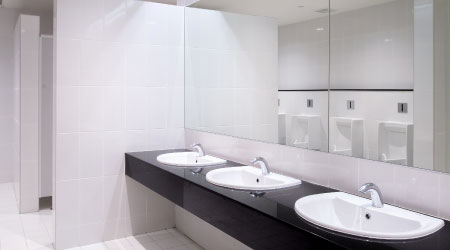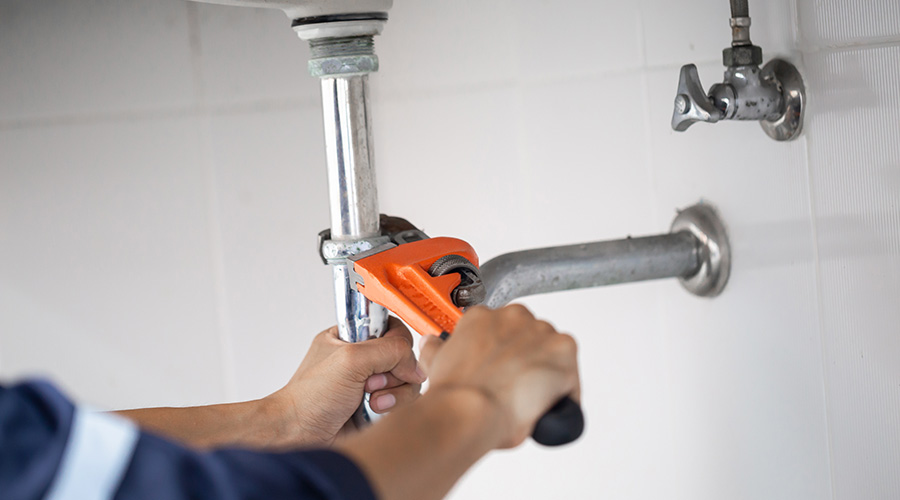New Landscaping, Irrigation Techniques Can Help Conserve Water
A Look at Landscaping
An important step toward water conservation is to be aware of the range of opportunities that exist to save water. Some of those opportunities might come as a surprise to facility managers.
"We do need to focus more on reducing outdoor water use," says Vickers. "Office buildings spend 50 percent of their water use on irrigation. Some water for irrigation is fine, but what we find when we do analyses is that irrigation is done inefficiently. Too many people are watering roads and sidewalks."
Vickers and her organization are researching and promoting new ideas when it comes to selecting outdoor landscaping in certain areas of the country.
"The demand for irrigation in urban areas is very high — in Southern California, it equals 70 percent of demand. It's indefensible that so much water is being used," says Vickers. "Permanent irrigation is beginning to be a luxury only. Landscape design is changing; there's been a boom in native design and the restoration of the natural environment. Most commercial and industrial facilities could reduce their irrigation demands by 50 percent. That's how large the water waste is outdoors."
The efficiency and design of landscape systems also can play a role in their cost and environmental impact.
"A poorly designed landscape can cause even efficient irrigation systems to waste water," says Tim Wilson, sales and development training director at Water Management. "In addition, irrigation systems that are not designed properly or that do not use water conservation technology can cause significant water waste."
A look at a landscape sprinkler system may reveal signs that the system is not well designed.
"Inefficient irrigation systems or ones that are poorly designed oftentimes have rotors adjacent to sidewalks," says Vickers. "These clearly were not designed well from the beginning. You can dig them up or start shutting off sections that are not needed. You have to make sure you're watering turf-only areas."
Indirect costs related to water waste also can affect a facility's bottom line. "Direct costs for water are small when compared to indirect costs," says Vickers. "These can include property, building and equipment damage from leakage and safety issues from water pooling on sidewalks and driveways."
Greater Focus on Efficiency
Efforts are underway to put more emphasis on water use. Among them, ASHRAE's 189.1 Standard for the Design of High-Performance Green Buildings includes a performance option requiring a 50 percent reduction in outdoor water use.
"This is significant since many water conservation professionals have ignored outdoor water use and focused solely on the indoor aspect," says Wilson. "Landscape water use can be one of the biggest causes of water use inefficiency on a site. These new requirements will cause professionals to sit up and start paying more attention to how water is used in the landscape."
An emphasis on outdoor water use isn't the only change on the horizon.
"Along with this is a strong movement to use alternate sources of water," says Hoffman. "These include both reclaimed water from a municipal system and on-site sources including but not limited to rainwater, stormwater, air conditioning condensate, foundation drain water and other sources that may be available."
Ultimately, experts agree that facility managers can find savings in their bottom line if they begin to give water efficiency efforts top of mind awareness.
"Unless a restroom is overflowing, it's out of sight and out of mind," says Lung. Once that trend is reversed, money may no longer flow freely down the drain.
Related Topics:













